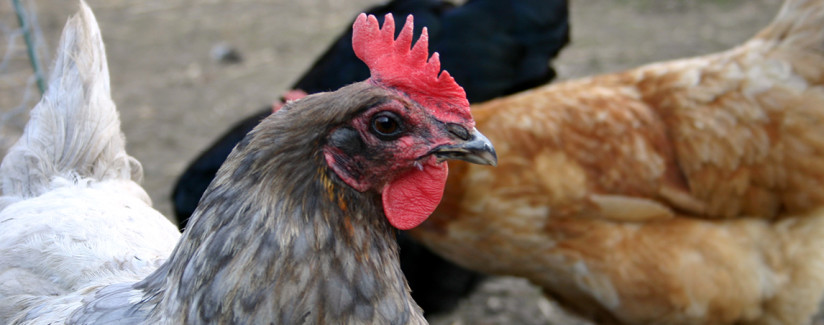
What You Need to Know About Bird Flu
Avian influenza, or bird flu, is spreading throughout the Midwest. How will this virus impact consumers? Are eggs, chicken and turkey still safe to eat? What precautions should we take? Although the ongoing bird flu outbreak in the U.S. is a dangerous situation for birds, experts say eggs and poultry meat are safe.
For more information, we went to Dr. Daniel Shaw, Veterinary Medicine Diagnostic Lab Avian Section Leader at the University of Missouri, and Maro Ibarburu, Associate Scientist and Business Analyst with the Egg Industry Center at Iowa State University.
Top-Line:
- The bird flu strains that have been identified have not affected any humans and are not considered a risk to public health.
- Bird flu cannot be transmitted through safely handled and properly cooked eggs or poultry.
- To learn more about cooking and handling eggs, visit USDA’s food safety question and answer page or the Egg Safety Center.
Can humans catch bird flu from coming into contact with birds? Can it spread from person to person?
Dr. Shaw: The Centers for Disease Control and Prevention (CDC) and the Iowa Department of Public Health consider the risk to people from the viral infections in wild birds, backyard flocks and commercial poultry to be low. No human infections with the virus have ever been detected. Human-to-human infection is very unlikely if a person would ever become infected.
Can a person catch bird flu from eating eggs or meat?
Dr. Shaw: There is no food safety risk for consumers and the risk of human infection is very low. Meat and eggs from infected flocks are diverted from the food supply chain, which makes it unlikely that consumers will be exposed to the virus through infected products. The cooking process quickly destroys the virus.
Are there any public health considerations we should be concerned about from the current bird flu outbreak?
Dr. Shaw: Public health agencies are concerned about poultry house workers during the outbreak and are monitoring them. There is, however, no indication of a threat to public health.
What will be the economic implications of this outbreak? How much more will we be paying for turkey, chicken and eggs?
Dr. Ibarburu: We have an estimation of the economic impact for Iowa based on the loss of 34 percent of the state’s poultry flock (20 million out of 59 million hens). We estimate that approximately 5 or 6 billion eggs are not going to be produced because of the bird flu outbreak. The value of these eggs represents almost $600 million. We estimate that about 1,300 direct jobs and 3,000 total jobs would be affected. The net economic impact would be approximately $260 million.
We don’t have daily or weekly information on retail prices or restaurants. The liquid egg market, or eggs used for other products like pasta or baked goods, is where we have seen a bigger reaction – a 143 percent increase during the first three weeks of May. From a table egg perspective, the increase in price delivered to stores was 95 percent during the same time period. It is important to note that the egg industry is characterized by large price fluctuations, even during more normal times. It is very difficult to tell how long this trend will last.
Dr. Shaw: Iowa is #1 in egg production in the U.S. Minnesota is #1 in turkey production in the U.S. It is likely that there will be upward pressure on the price of eggs and turkey because of the outbreak of bird flu in these two states. There are other areas of the U.S., however, that produce poultry that are not affected. These areas should be able to supply the domestic markets. In addition, several countries have banned importation of poultry products from the U.S. This will help bolster domestic supply.
Ag economists estimate bird flu could cost the two hardest-hit states, Minnesota and Iowa, nearly $1 billion. Recent reports from the USDA indicate national exports of turkey meat will decrease 10 percent, eggs roughly 1.5 percent and chicken meat 6.8 percent this year.
Is there anything else consumers might want to know about this bird flu outbreak?
Dr. Shaw: The avian influenza outbreak is a big deal. There hasn’t been this magnitude of disease outbreak in livestock in the U.S. for a long time. State and federal agencies are working to stamp it out as expeditiously as possible. Producers are receiving some financial compensation. Unfortunately, the indemnity payments will not cover all of the direct and indirect financial losses to producers, their employees, and suppliers.
For additional information on avian influenza, including answers to frequently asked questions, visit the following:
USDA Avian Influenza Resources

























